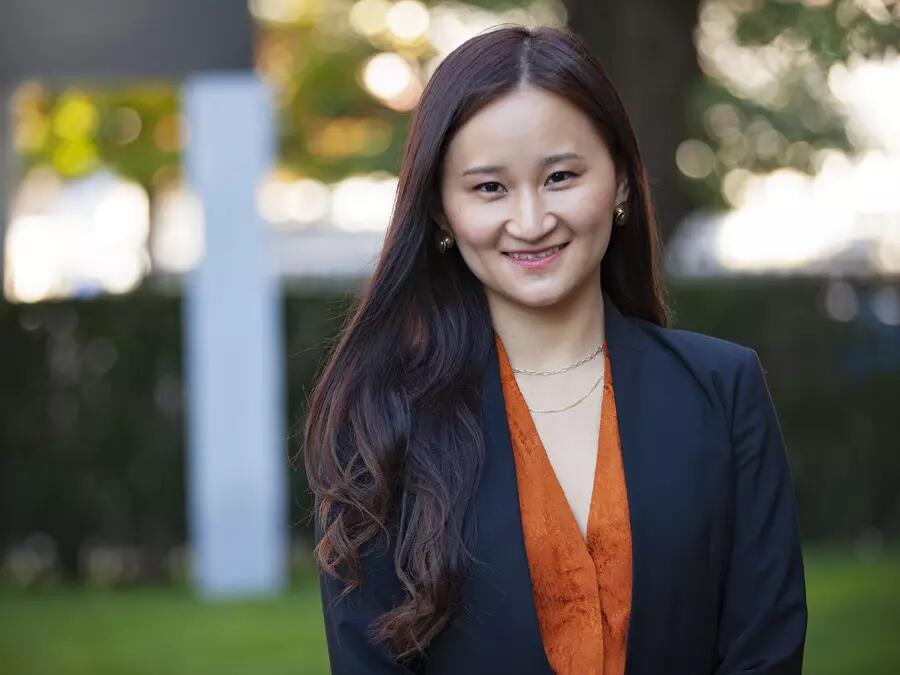
Diana Fu Appointed to Royal Society of Canada
Diana Fu is hoping to use her growing platform as an expert on domestic Chinese politics to bring greater awareness about how the country operates to Canadians.
“My goal is to contribute my knowledge about China into something that the Canadian public and policy makers can easily digest and act upon,” says Fu, an associate professor in U of T Scarborough’s Department of Political Science and the Munk School of Global Affairs and Public Policy.
“I want to help decipher Chinese perspectives, and provide context about why certain policies and laws in China are made. If we don’t have context, all we see is propaganda from the Chinese side, without any understanding about the political machine that generates it all,” she says.
Fu joins Professor Marc Cadotte as U of T Scarborough’s newest members elected to the Royal Society of Canada’s College of New Scholars, Artists and Scientists. The honour recognizes scholars at an early stage in their career who have demonstrated a high level of achievement.
Fu's interest in Chinese politics started at an early age. She was born in China, and remembers her parents discussing politics when she was very young.
“I lived through Chinese politics. I think because I grew up there, I went to school there and was exposed to it early on, it was a connection I carried with me when I moved to Canada.”
After moving to Canada with her family when she was in elementary school, Fu attended the University of Minnesota, where, in her third-year of undergraduate studies, she went back to China to complete a research project on migrant workers.
“I think role models are important, and I encourage students to find good ones. At the same time, I think it’s really important to know yourself and to create your own path.”
“It was a timely topic because China was seen as the new factory of the world, and it was being driven in large part by cheap, available labour,” she says.
That research would sow the seeds for her award-winning first book, Mobilizing Without the Masses, published in 2018. The book is an in-depth look at how people and labour organizations in China help migrant workers without being able to organize public demonstrations or protests.
After her undergrad she received a prestigious Rhodes Scholarship to study at the University of Oxford, where she completed her master’s and doctorate degree, before completing a postdoctoral fellowship at Stanford University.
She currently serves as national co-secretary of the Rhodes Scholarship for China, where she oversees the entire selection process for scholarship in the China constituency, one that any student anywhere in the world who holds a Chinese passport is eligible to apply to. It’s an enriching personal experience for Fu, in many ways completing a circle that began more than a decade ago when she applied for her own Rhodes Scholarship in Canada.
“It’s a really fulfilling process to be a part of because it puts me directly in touch with some of the brightest and most ambitious students who aspire to be the next generation of world leaders,” she says.
Fu’s current research focuses on popular protest, state control, civil society and authoritarian citizenship in contemporary China, and her passion for translating that expertise has manifested itself in several public engagements.
She is a Public Intellectuals Fellow at the National Committee on US–China Relations, a prestigious non-profit advisory group founded in 1966 to encourage greater understanding between the two countries. She hopes to draw upon that experience to contribute to a thriving public intellectual community around Canada-China relations. She also hosted China: Here and Now, a seven-part TVO documentary series exploring China’s recent evolution and its changing influence in the world.
When she isn’t working, Fu is passionate about the arts, especially creative writing and dance. In terms of influences that have shaped her life and career, Fu goes back to a saying her mother used to tell her.
“She told me to ‘set off your own fireworks,’ just to be my own person. I do draw influence from all different kinds of people, but I don’t have a single role model, one person that I wanted to be exactly like,” she says.
“I think role models are important, and I encourage students to find good ones. At the same time, I think it’s really important to know yourself and to create your own path.”

